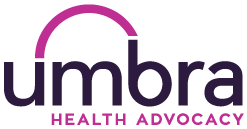An “Advance” New Year’s Resolution

Happy 2020 to you, my "patient" readers. I wish you much good health and happiness and importantly, peace-of-mind in this new year.
OK - yes - it's mid-January, so it might be a wee-bit late to be listing our resolutions for the year, but that doesn't make this piece of advice any less important.
I want to share something with you that has brought ME some huge peace of mind. And I'm going to challenge you to find some peace-of-mind for yourself, too. It takes a little bit of face-time with reality, and a bit of effort, too.
But believe me. It's well worth it!
In 2006, my husband and I married. This is a second marriage for us both, and since we both have adult children, we realized quite early on that it was a smart move to have our wills made up, making sure our kids would get their due, that family items would stay in the right family, etc.
And so we did. We found an attorney who could help us set up our wills, so that was squared away. But in the process, I learned that having our wills drawn up was really just the start! Wills don't come into play until AFTER a loved one has passed away. They address assets - not healthcare.
Those were my very early days of writing on patient empowerment and advocacy topics and wow - did I ever get an education! I had never really understood about the need for other healthcare related documents like DNRs, or healthcare proxies, or living wills, or POLST or MOLST. They all fall under the title of "advance directives", and if any of those document names are unfamiliar to you, then you need an education too: Find descriptions of "advance directives" here.
Wills address what happens AFTER life. But they don't address what happens DURING life - at the end of life. So... how do we make our wishes known then? Like - what if I don't want to be kept on life support under some circumstances? Or what if I do? How will anyone know? Especially if I am in a coma or have lost my cognition... what then?
The time to make sure those decisions are clear is when they are. Documenting our choices while we are still healthy and capable is the key. And that's what "advance" directives do.
So we took care of those, too. And that was that - many years ago.
Now, fast forward 10 years, to 2016. My husband retired and we moved from our home in New York State to Florida.
 We had lived here almost two years before we learned that all those diligently prepared advance directives - our DNRs, our proxies, and our wills - meant bupkis in Florida. Nothing! As if we have never taken the time, and gone to the expense of drawing them up....
We had lived here almost two years before we learned that all those diligently prepared advance directives - our DNRs, our proxies, and our wills - meant bupkis in Florida. Nothing! As if we have never taken the time, and gone to the expense of drawing them up....
Since state laws vary, etc etc - we had to do them all over again! And so - last year at this time, we decided our 2019 New Year's Resolution was to get all those documents updated - Florida-ized.
Over the course of the year, we did it. We found a new lawyer, spoke with our providers, etc - did what it takes to make sure our advance directives are current and LEGAL in our newly-adopted home state. And so they are.
So that's my challenge to you in this early part of 2020... to take a page from my husband's and my book - and vow to get your advance directives drawn up and solidified this year. You can begin with this article which links to all states in the US and tells you what's what in which state. Then find a good attorney, or, if your wishes are fairly simple, go online to find templates you can use.
And if you need help? An independent advocate or care manager is your choice... that word "independent" is the key to making sure you find an objective counselor; someone who can help you make your own decisions, on your own terms, and to document them properly.
Just get it done! It's an achievement that will serve you well. The peace of mind you'll find will be oh-so-worth the effort.
And next year, when January 2021 rolls around - it will be checked off your list.
Find a Health / Patient Advocate or Care Manager
Learn more about The Alliance of Professional Health Advocates
